Tags: Oceans
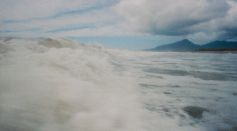
50-Year Mystery of Giant Hole in Antarctic Sea Ice Solved by Scientists; Salt Appeared To Play Crucial Role
Biohybrid Robots Based on Jellyfish Designed to Gather Climate Science Data From Depths of the Oceans
New Sea Slug Species Found in UK Waters Raises Climate Change Migration Concerns
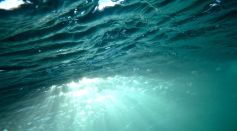
Oceanic Viruses: Potential Allies in Carbon Capture for Combating Climate Change
Fastest Marine Animals: What Are Best Swimming Species in the World?

Greenland Is Rising Faster Than Rising Oceans Amidst Glacier Fringe Loss, Study Finds

Rivers Are Getting Oxygen-Deprived and Warmer, Putting Aquatic Life at Risk

Hotter Oceans Fueling Aggression in Sharks; Scientists Warn as Record Temperatures Are Reached Due to Worsening Climate Change
Playful Orcas in Atlantic Engage in Dangerous Game by Targeting Small Boats, Expert Says

How Does Dust Help Ecosystem? Scientists Unravel Its Role in Sustaining Oceans, Controlling Atmospheric Carbon Dioxide Levels

Viruses in World's Oceans? These Extremely Odd Thriving Organisms May Shed Light on the Origin of Herpes

Two Uranus Moons Might Be Harboring Active Oceans That Release Materials to Space, Research Suggests
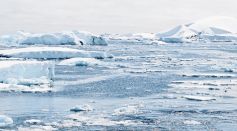
Massive Iceberg as Big as Greater London Breaks Off From Antarctica's Brunt Ice Shelf; How Does This Affect Local Ecology, Shipping, People?

Earth's Past 100 Million Years Revealed by Detailed Geological Model; Scientists May Test Theories on Planet's Response to Tectonic Forces, Climate Change

NASA Scientists Baffled by Mysterious Whiting Events in Oceans, Other Bodies of Water

390-Million-Year-Old Seawater Has Been Discovered; Is It Indicative of Oceans’ Adaptation to Climate Change?

Two Extraterrestrial Water Worlds Discovered, With Depths 500 Times More Than Earth's

ISRO Shares OceanSat-3’s First Snaps of Earth
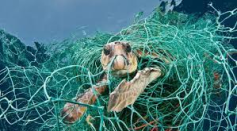
Trawling Fishing Nets, New Recycling Efforts To Save and Oceans in UK
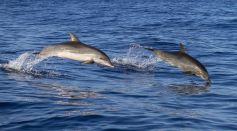
Easy, Fast and Non-Invasive Way of Quick Health Check on Dolphins Will Also Helps Monitor Status of the Oceans
Most Popular

Say Goodbye to Dark Spots: The Science Behind Dark Spot Remover Creams

Persistent Coughs Are Everywhere: Here's What Experts Think Is Causing It

Ancient Hotspot Found to Have Created Great Lakes 300 Million Years Ago

Mysterious Structures Discovered Beneath the Pacific Ocean, Puzzle Scientists





